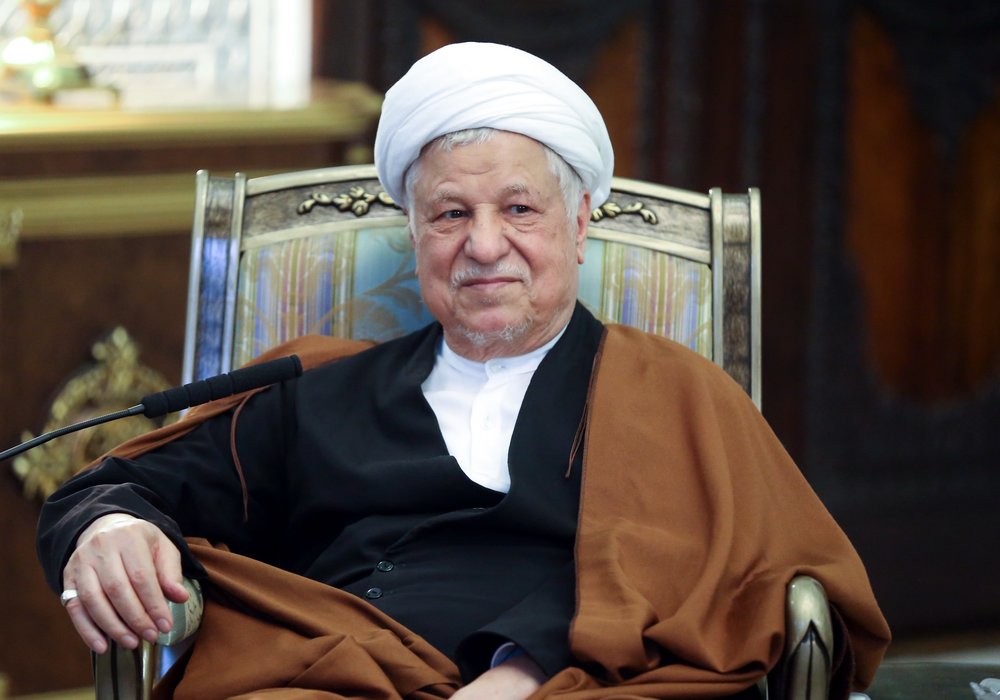Iran marks first anniversary of Rafsanjani’s demise

TEHRAN – In a ceremony on Tuesday Iran marked the first anniversary of the demise of Ayatollah Akbar Hashemi Rafsanjani.
The ceremony, held at the conference hall of the Islamic Cooperation Organization, was attended by dignitaries including Vice President Es’shaq Jahangiri, Hassan Khomeini, nuclear chief Ali Akbar Salehi, Intelligence Minister Mahmoud Alavi, and former culture minister Mostafa Mirsalim among other dignitaries.
Ayatollah Rafsanjani passed away on January 8, 2017 of a heart attack. The body of the first-generation revolutionary was buried in the mausoleum of Imam Khomeini, the founder of the Islamic Republic, in southern Tehran.
President Hassan Rouhani posted a message on Twitter on Monday paying tribute to Rafsanjani.
Jahangiri said that Rafsanjani was a “development-oriented strategist”.
“Nobody saw him hopeless; he always had plans for future and tough days,” he said.
The vice president also said that Rafsanjani played an “effective” role in the victory of revolution, the handling of Iraq’s war against Iran in the 1980s, and also Iran’s international relations.
Jahangiri noted that Rafsanjani always highlighted the importance of holding free elections and respecting the people’s rights.
Elsewhere, he described Rafsanjani as “identity” of the Islamic system.
Born in 1934 in a village in eastern province of Kerman, Rafsanjani grew up in a wealthy family.
He started his political career in the 1960s, acquainting himself with the views of the to-be founder of the Islamic Revolution Ayatollah Rouhollah Khomeini.
Soon he proved leadership qualities, winning the trust of Ayatollah Khomeini. He was arrested time and again by security forces of Mohammad Reza Pahlavi, the last monarch of Iran, for his key role in anti-monarchy campaigns.
With the triumph of the Islamic Revolution in 1979, Rafsanjani became the first parliament speaker of the post-revolution Iran.
In 1980, Ayatollah Khomeini tapped Rafsanjani as commander of the war after Iraqi dictator Saddam Hussein waged the war against the fledgling revolution.
He served the revolution in his capacity as parliament speaker (1980-1988), president (1989-1997), and chairman of the Expediency Council (1998-to his death). He was also the head of the Assembly of Experts from 2007 until 2011 and interim Friday prayer preacher of Tehran from 1981 to 2009.
NA/PA

Leave a Comment